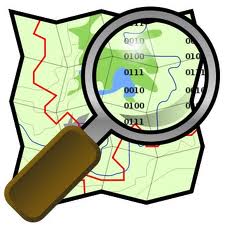

Surveyors by definition (and application) require a sound understanding of geodesy, civil engineering and surveying knowledge. Their profession depends on the application of this domain specific knowledge in a formalised and specific manner, that is, measurement of the earth’s surface closely follows prescribed methods and techniques.
Whereas anyone with a GPS receiver can locate and create basic mapping, surveying like photogrammetry and remote sensing is not easily applied without specific knowledge and expertise. Does this rule out participation by the general public into these domains, particularly at a time when automation and simplification of complex tasks is growing in many work flows? Probably not, at least to the extent that technology is automated and anyone can use it.
Surveying is heavily weighted to data capture and creation. Equipment expense is another factor that precludes crowdsourcing approaches to surveying – not many individuals can afford to put a survey crew into the field, and, there is probably not as much excitement to survey many of the less attractive and popular places where surveying is required by crowdsourcing individuals.
Given that most of us want our property (and personal investments) handled professionally and accurately, as well as intensive industrial applications, we are not likely to see formalised surveying given over to weekend surveyors any time soon.
But I cannot help but think that the huge success of projects like OpenStreetMap which involve crowdsourcing, have lessons to share and to cause us to ponder how, where and when these kinds of participative actions can stimulate, augment and improve surveying actions while also nourishing greater excellence into the survey, mapping and construction communities.
My sense is that crowdsourcing would expose new areas where surveying technologies can be applied, areas for research and the development of new applications dependent upon even greater formalised surveying talents. Perhaps engagement is the way forward. Identifying applications the general public wishes to see such as augmented reality, improved building designs and greater efficiency in transport would seem like areas where crowdsourcing and formal, professional surveying can cross paths, talk and sort through some of these issues.
—————————————————
Jeff Thurston is co-founder and editor at Vector1 Media.
